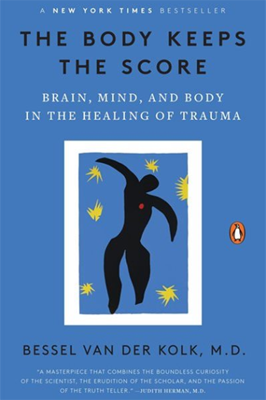Treatment for Post Traumatic Stress Disorder is possible.
In my previous article, Trauma and Post Traumatic Stress Disorder, the symptoms of PTSD were reviewed. If you have been experiencing these symptoms for more than a month, there is a very good chance that your life is being significantly disrupted, and you could benefit from therapy. But where do you start?
How do you choose a therapist?
The most important thing to remember about trauma is that it impacts mind, body and spirit. PTSD treatment therefore should be multifaceted – helping you learn to:
- Calm your nervous system
- Manage your emotions and alter damaging thinking patterns or beliefs about yourself or the world that have been created because of the event(s).
Calming Your Nervous System
Treatments that focus on calming the nervous system include neurofeedback, breath work, somatic processing, grounding, EFT (tapping), mindfulness, meditation, yoga, vagus nerve stimulation, and bio-feedback to name a few. The goal of these therapeutic techniques is to help you re-establish a sense of control over your symptoms and yourself. However, alone they will not heal the trauma.
Managing Your Emotions
For people who have been diagnosed with PTSD, managing our emotional responses can be like riding a roller coaster. The traumatic experiences have overwhelm our central nervous system causing it to be over-sensitive to any perceived threat and to frequently bring us back to our fight-flight-freeze response.
There are many proven therapeutic approaches which can help you learn to manage your emotions including:
- Emotional Focused Therapy
- Anxiety Management
- Exposure Therapy
- Stress Inoculation Therapy
- Systematic Desensitization
Altering Damaged Thinking Patterns & Beliefs
Traumatic experiences tend to negatively impact the way in which we view ourselves, our safety, and the world around us. Our beliefs impact our feelings and our behaviours.
Therapeutic approaches that are designed to alter negative thinking patterns that do not serve you include:
- Cognitive Behaviour Therapy
- Narrative Therapy
- Emotion Focused Therapy
Integrated Approaches
Trauma is a sensory experience – meaning it is experienced through our five senses. Our cognitive functioning or thinking brain is “off-line” at the time the trauma occurs so that we can focus on our fight-flight or freeze response. It is only afterwards that we try to put words or meaning to what occurred. It is in our right brain or emotional brain where the memories of the experience are stored. They are also stored in our bodies. Trauma impacts the communication between our right brain and our left or “thinking” brain. Therapeutic techniques that help re-wire the brain and re-integrate right and left- brain functioning (help you learn to manage your emotions and your thoughts at the same time) are considered most effective. These include:
- Staged Trauma Processing
- Emotion Focused Therapy
- Emotion Freedom Technique (EFT)
- Sensorimotor Psychotherapy
- Somatic Processing
- Eye Movement Desensitization and Reprocessing (EMDR)
- The Comprehensive Resource Model (CRM) to name a few.
Trauma treatment is not one-size fits all.
Trained trauma therapists use a variety of treatment approaches to best meet your specific symptoms and needs. If you are interested in finding out more about the therapeutic approach that will best suit you, contact us at the Relationship Centre to meet with one of our Trauma Specialists.
by Heather Baker MSW, RSW
Books We Love
Waking the Tiger normalizes the symptoms of trauma and the steps needed to heal them. People are often traumatized by seemingly ordinary experiences. Through heightened awareness of these sensations, trauma can be healed.
by Peter A. Levine with Ann Frederick
The Body Keeps The Score
Brain, Mind and Body in the Healing of Trauma.
This book exposes the tremendous power of our relationships both to hurt and to heal—and offers new hope for reclaiming lives.
by Bessel Van der Kolk, M.D.












